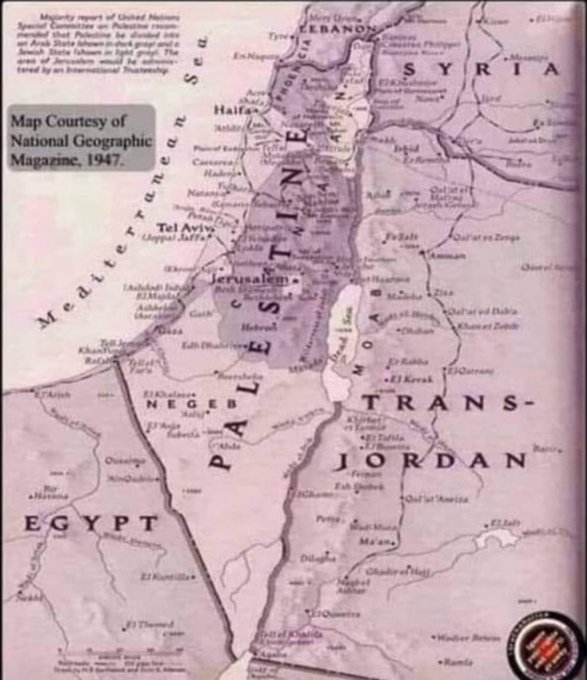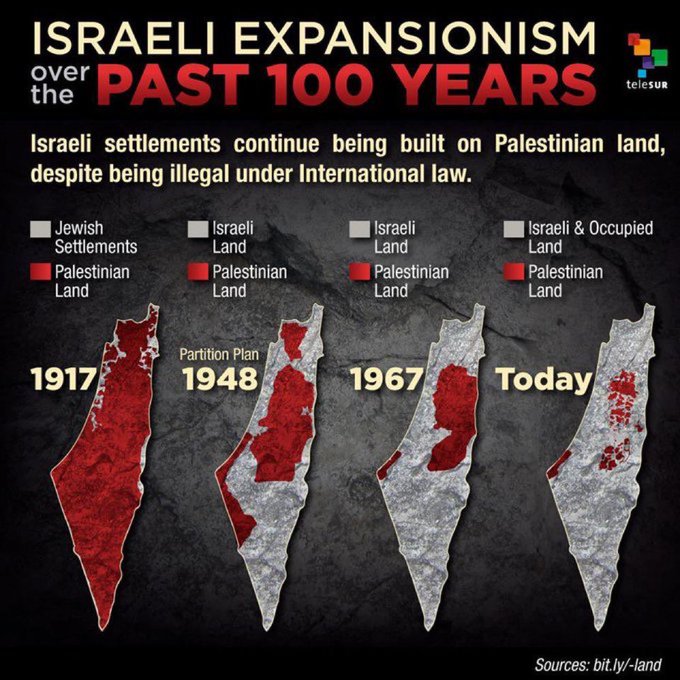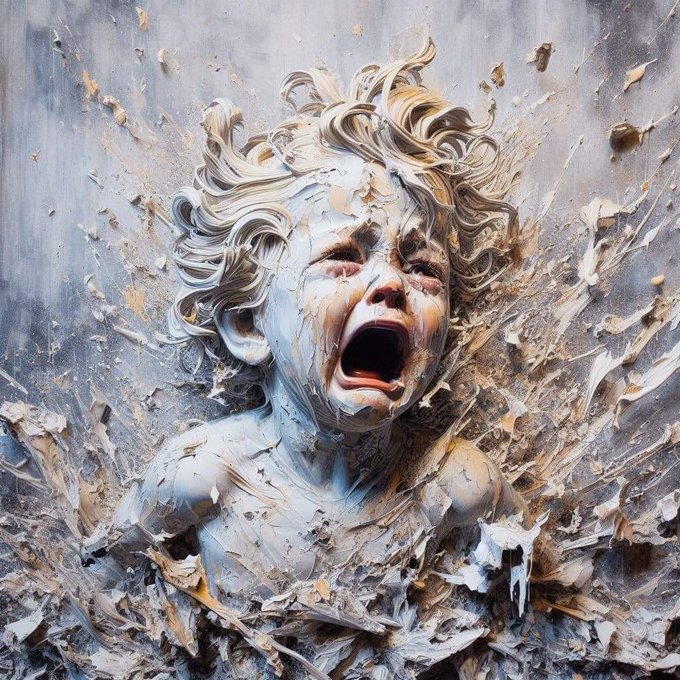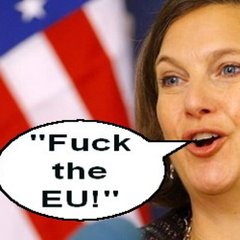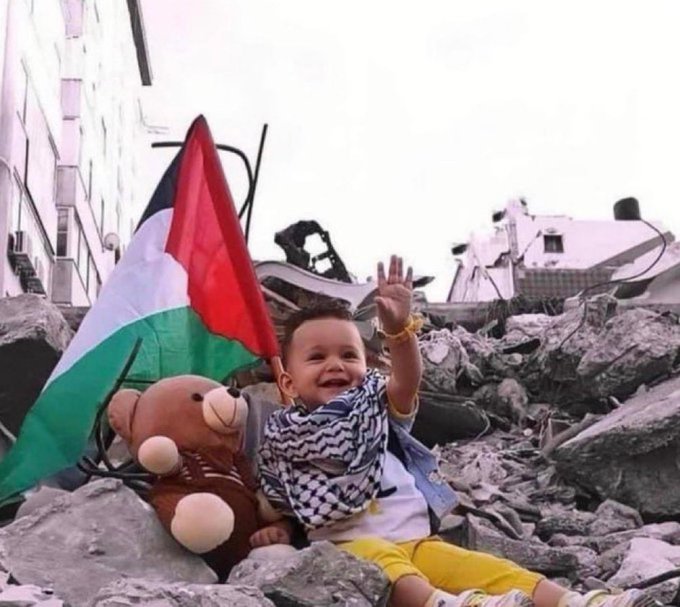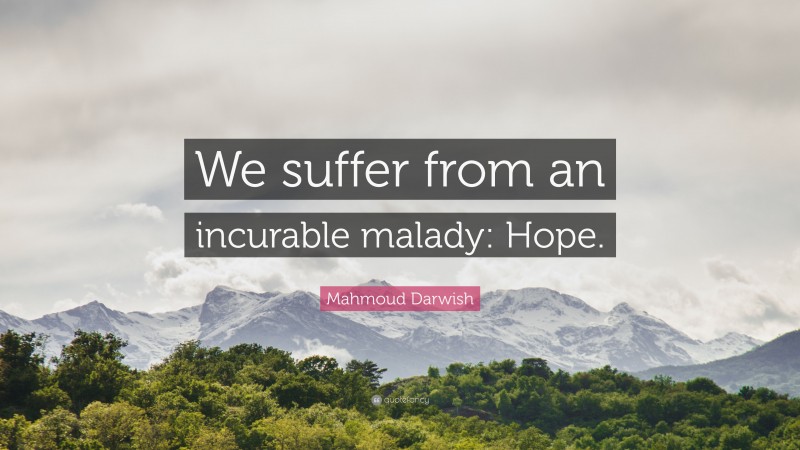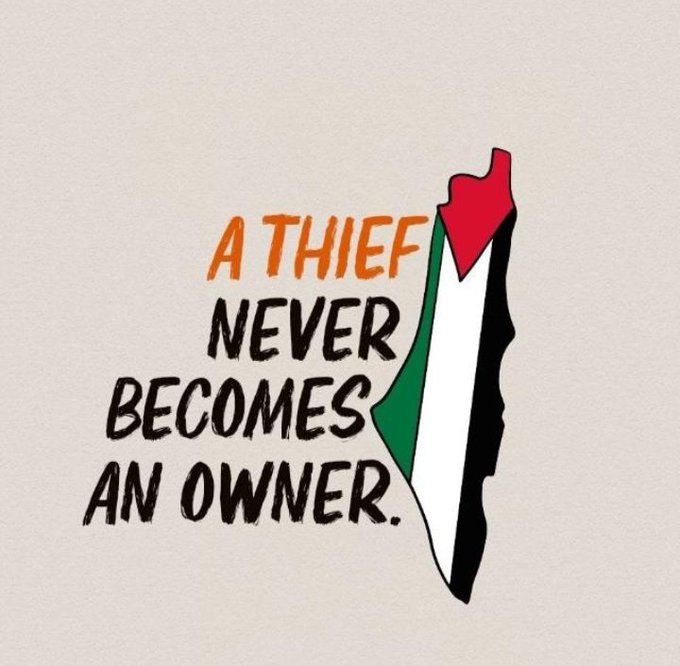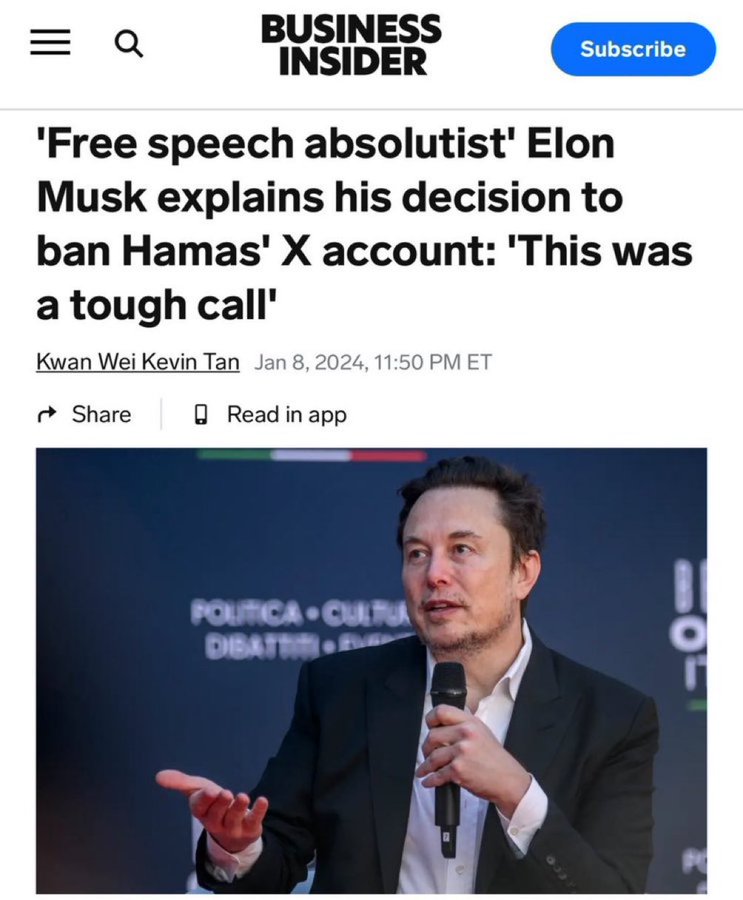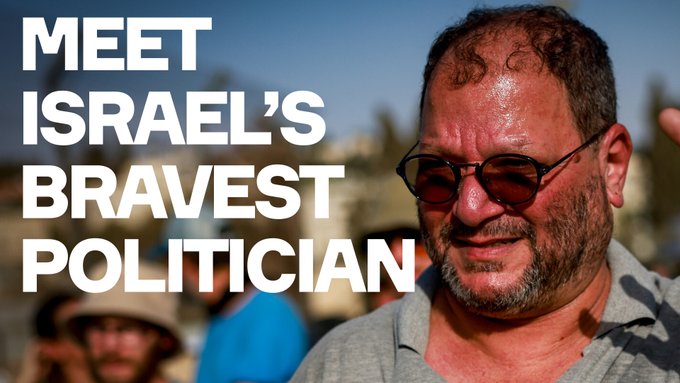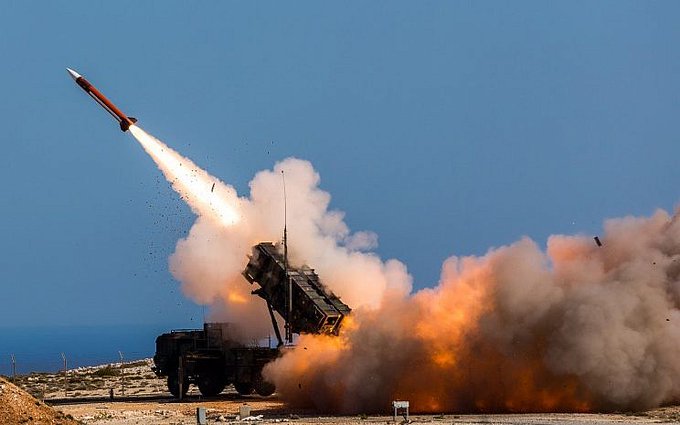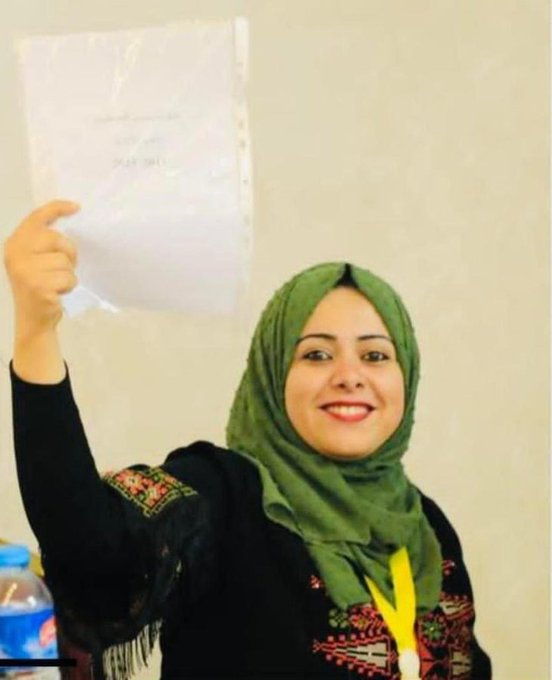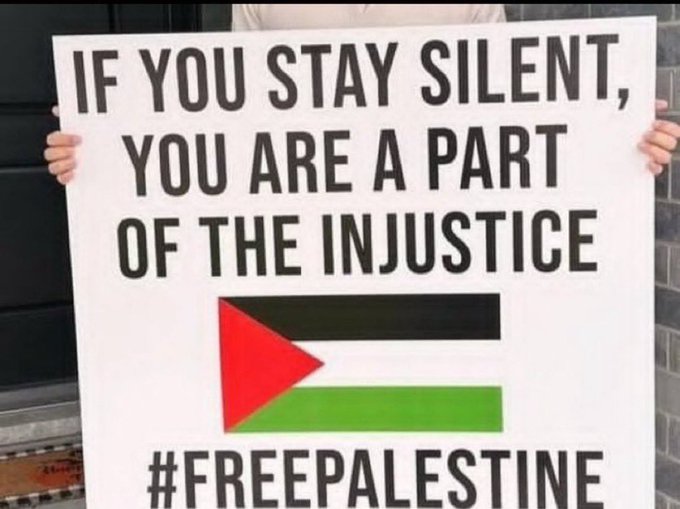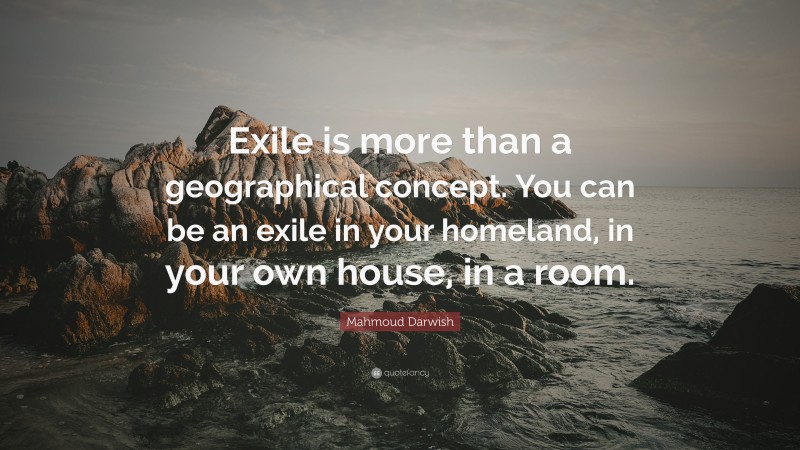GAZA (Gernika berria, Palestina) versus Israel (gehi AEB + NATO, Pentagonoa eta EB) (49)
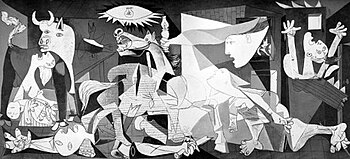
Gogoratzekoa
oooooo
History did not begin on October 7th!
https://twitter.com/i/status/1740157757486211240
oooooo
Europe? No, Thanks!
World Children’s Day
oooooo
oooooo
Segida:
The UN’s International Court of Justice (ICJ) is biased and dominated by the Western colonial powers. South Africa’s case accusing Israel of genocide is very strong, but the sad reality is politics drives ICJ rulings, not facts.
The ICJ has 15 judges from these countries: US
Germany
France
Australia
India
Japan
Slovakia
Russia
China
Brazil
Morocco
Uganda
Somalia
Lebanon
Jamaica
South Africa’s case would need 8 votes from those judges, and is unlikely to get them, as the US government is going to aggressively lobby the other members to vote against the case, or to at least abstain.
It would of course be nice if the ICJ actually ruled based on facts, but politics is in command. And the international political/judicial order is still deeply colonial.
Source:
oooooo
Great news – @jeremycorbyn will join the South African delegation for this week’s hearings at the International Court of Justice against #Israel. Just the right man morally though I’d love to see @georgegallowaythere too!!
oooooo
Now you know why Germany beats and arrests pro-Palestine protestors?
Aipamena
F I R A S@firasshams1
2023 abe. 24
There has been an estimated 1000 percent increase in German arms sales to Israel
amidst the war on Gaza.
oooooo
“It is much worse than we hear.” Gaza is enveloped in a medical catastrophe. These are messages from Dr Nick Maynard, a British doctor who is now in Gaza. (Via @dr_omar_am)
oooooo
BREAKING| Deputy Prime Minister of Belgium, Petra De Sutter, says she will propose a request within the government demanding Belgium to take action at the ICJ, following the lead of South Africa.
“Belgium cannot stand by and watch the immense human suffering in Gaza. We must act against the threat of genocide”, she stated.
oooooo
Revolutionary Blackout Network@SocialistMMA
The reason Hamas was immediately banned on Twitter is not because they are “extreme” or “terrorist” It’s because Elon and the establishment knows if Hamas had an equal chance to share their side that it would be impossible to control the narrative about them
The last video of the angel “Lara” taken by her martyred mother Samah Naim, on the morning of the day that Israeli rockets killed them. Look at the baby’s eyes, and don’t look away !!
oooooo
Representante de Chile hoy en la Asamblea General de la ONU: “Chile presentará prontamente la remisión de la situación en Palestina a la fiscalía de la Corte Penal Internacional para que se investiguen los crímenes que se cometen en los territorios palestinos ocupado”.
Bideoa: https://twitter.com/i/status/1744794333713183122
oooooo
Here the IDF is destroying more Palestinians homes in Jerusalem
There is no Hamas in Jerusalem and it’s supposed to be an international city not ran by Israel
Bideoa: https://twitter.com/i/status/1745028452636385355
oooooo
Ahead of South Africa’s case against Israel at the International Court of Justice, I spoke with
@andrewfeinstein about our responsibility to speak up for Palestine, for peace and for our shared humanity.
Bideoa: https://twitter.com/i/status/1745135061765132617
oooooo
BREAKING: Pakistan has announced its support for South Africa’s genocide case against Israel at the International Court of Justice (IJC).
oooooo
Talk TV journalist, Julia Hartley-Brewer, suggests that ethnically cleansing Gaza might be the right thing for Israel to do.
oooooo
This Israeli politician backed the genocide investigation into Israel. His colleagues responded by trying to eject him from Israel’s parliament. I talk here with the courageous
about his stand – and the horrendous atmosphere in Israel
erabiltzaileari erantzuten
oooooo
BREAKING:
Massive Houthi attacks in the high seas
The Houthis attacked US and UK ships that reportedly intercepted 21 missiles and drones in the Red Sea.
US Central Command said that they confronted 18 drones, two cruise missiles, and a ballistic missile over the Red Sea.
This is the heaviest attack by the Houthis since the beginning of the war.
Britain’s chief rabbi, Ephraim Mirvis, enthuses about the crimes against humanity being perpetrated in Gaza by what he calls “our heroic soldiers” – yes, if you or I conflated the Jewish people with Israel, we’d be called antisemites.
He then reveals that his son, Danny, is among the soldiers in Gaza. He says he is “immensely proud” of what these soldiers are doing in Gaza – so far they have killed 23,000 Palestinians, most of them women and children.
He concludes: “What Israel is doing is the most outstanding possible thing that a decent, responsible country can do for its citizens.” Is Mirvis not giving his religious blessing to genocide here?
Bideoa: https://twitter.com/i/status/1745061075572187636
oooooo
Israel admits purposely targeting Palestinian journalist Hamza Dahdouh, son of Al Jazeera’s Wael Dahdouh.
oooooo
Starmer on Israels actions: “I think its unwise for politicians.. to sit in TV studios & pronounce which acts may or not be in accordance with international law”
Starmer sitting in a TV studio, on Russias actions: “What I’ve seen amounts to war crimes”
Bideoa: https://twitter.com/i/status/1745048616874496376
oooooo
BREAKING| Israel kills journalist Hiba Abadleh and her daughter in an airstrike that targeted their house in Gaza.
BREAKING:
US Secretary of State:
“Hamas could have ended this on October 8 by not hiding behind civilians, by putting down its weapons, by surrendering, by releasing the hostages.
None of the suffering would have happened if Hamas hadn’t done what it did on October 7 and if it made different decisions thereafter.”
Comment: He practically admits that there is genocide and massacre in Gaza, perpetrated by Israel. Justifying them, that they happened because of Hamas.
oooooo
Every reporter covering Israel-Palestine in Western legacy media must publicly state whether they are ideologically committed to the system of Zionism, so the public can recognize the ulterior genocidal agenda behind their reporting It is a matter of transparency & media ethics
Aipamena
The Grayzone@TheGrayzoneNews
urt. 10
Washington Post reporter confronted LIVE by The Grayzone’s @MaxBlumenthal and @aaronjmate over plans to smear us for our factual reporting on October 7
WaPo’s @lizzadwoskin is a pro-Israel ideologue who has referred to Palestinians as “desert Bedouins” with no national identity
Bideoa: https://twitter.com/i/status/1745151397358698725
President Lula of BRAZIL has declared his support for South Africa’s GENOCIDE LAWSUIR against ISRAEL at the International Court of Justice.
ooooo
BREAKING:
Channel 13:
US Secretary of State Anthony Blinken during his meeting with war cabinet officials:
“It is impossible to eliminate Hamas in its current form.”
Blinken also said at a war council meeting that the Palestinians have ambitions and must accept them.
Megatron: Netanyahu now has a clear proposal on the table from the US: “Cease fire and a Palestinian state” or a war on a regional scale that you will surely lose and the US won’t be able to protect you.
oooooo
erabiltzaileari erantzuten
To anybody who is reading this don’t stop talking about Palestine
Don’t stop talking about Palestine
Don’t stop talking about Palestine
Don’t stop talking about Palestine
Don’t stop talking about Palestine
erabiltzaileari erantzuten
You tell me Iran is some kind of devil, but Iran is fighting for Palestinians better than any other Arab country.
I’ve had the privilege of living& working amongst the people of lebanese resistance Hizbulla, the ONLY Arab army ever to beat Israel
Bideoa: https://twitter.com/i/status/1745198823352176959
oooooo
Video shows the horrifying aftermath of Israeli airstrikes and artillery shelling at the entrance of the Nusseirat refugee camp in central Gaza.
Bideoa: https://twitter.com/i/status/1745271814019059745
oooooo
Gaza and the West Bank are what stand between Israel and its dream of greater Israel, Mediterranean to the Euphrates and Lebanon down to KSA. The West calls israel a democratic country and have shared values with them.
Aipamena
ADAM@AdameMedia
urt. 9
“We’re going to take Mecca, medina and Sinai”
This isn’t some random. This is their finance minister!
They need to be stopped. The west can no longer afford forever wars.
Bideoa: https://twitter.com/i/status/1744825175177068743
oooooo
In an interview with Sky News Australia, Francesca Albanese, the UN Special Rapporteur for occupied Palestine, responded to claims that Gaza is no longer occupied since Israeli forces withdrew and Hamas has been in control since 2005
Bideoa: https://twitter.com/i/status/1745211932875870359
oooooo
Any effort to enforce a genocide ruling by the International Court of Justice through the UN Security Council will be blocked by the Biden administration.
Meanwhile, the UK, along with Canada, Germany, Denmark, France and the Netherlands, have already demonstrated how unabashed they are about their own double standards.
Weeks ago they submitted formal arguments to the International Court of Justice that Myanmar was committing genocide against the Rohingya ethnic group. Their central argument was that the Rohingya were being subjected “to a subsistence diet, systematic expulsion from homes, and the induction of essential medical services below minimum requirement”.
But none of these western states is backing South Africa’s genocide submission to the same court – even though conditions in Gaza engineered by Israel are even worse.
The truth is that a genocide ruling by the court will open up a can of worms for the West, and its readiness to accept that the provisions of international law apply to it too.
Israel has been at the forefront of efforts to unravel international law in Gaza for more than a decade. Now it is ostentatiously flaunting its perpetration of the crime of genocide, as if daring the world to stop it.
Perversely, it is reversing the very international safeguards put in place to stop a repeat of the Nazi Holocaust.
Will the West defy Israel or the court? The post-war consensus that serves as the foundation for international law – already shaken by the failure to address the West’s war crimes in Iraq and Afghanistan – is on the verge of complete collapse.
More in my article The West will stand in the dock alongside Israel at the genocide court here:
oooooo
The Holocaust was perpetrated on the Jewish people, not on Israel. “The Jews” are not being charged at The Hague with genocide, Israel is. Conflating “Israel” and “the Jews” is antisemitic. Don’t be an antisemitic fool like this “columnist”. https://twitter.com/benmfreeman/st
oooooo
Breaking: Israel’s warplanes bombed the remaining generators of the power generation station in Gaza. With this, Israel has destroyed all aspects and essentials of life in Gaza, including water stations, roads, hospitals, universities, most schools, and the only flour mill.
oooooo
The South African Apartheid Regime was backed by three countries to its wretched end; Israel, the United States, and the United Kingdom. We can hear the echoes of this history as a free South Africa prepares to take Israel to court for genocide
oooooo
Peace & Justice Project@corbyn_project
Ahead of the International Court of Justice case brought forward by South Africa, charging Israel with the crime of genocide against the Palestinian people,
met with
to discuss the hearings and why we must never give up on building lasting peace.
Bideoa: https://twitter.com/i/status/1745132690267939099
oooooo
On the eve of ICJ hearing Netanyahu announces Israel will not occupy Gaza despite claiming for months that it would:
oooooo
Two Decades Ago, Palestinians Called on the World to Boycott Israel Until It Complied with International Law. What If We Had Listened? New from me in
on the price of impunity and the moral imperative of BDS
ooo
We have a tool to stop Israel’s war crimes: BDS

In 2005, Palestinians called on the world to boycott Israel until it complied with international law. What if we had listened?
Wed 10 Jan 2024
Enough. It’s time for a boicot
Naomi Klein
- Exactly 15 years ago this week, I published an article in the Guardian. It began like this:
It’s time. Long past time. The best strategy to end the increasingly bloody occupation is for Israel to become the target of the kind of global movement that put an end to apartheid in South Africa. In July 2005 a huge coalition of Palestinian groups laid out plans to do just that. They called on ‘people of conscience all over the world to impose broad boycotts and implement divestment initiatives against Israel similar to those applied to South Africa in the apartheid era’. The campaign Boycott, Divestment and Sanctions was born.
Back in January 2009, Israel had unleashed a shocking new stage of mass killing in the Gaza Strip, calling its ferocious bombing campaign Operation Cast Lead. It killed 1,400 Palestinians in 22 days; the number of casualties on the Israeli side was 13. That was the last straw for me, and after years of reticence I came out publicly in support of the Palestinian-led call for boycott, divestment and sanctions against Israel until it complies with international law and universal principles of human rights, known as BDS.
Though BDS had broad support from more than 170 Palestinian civil society organizations, internationally the movement remained small. During Operation Cast Lead, that began to shift, and a growing number of student groups and trade unions outside Palestine were signing on.
Still, many wouldn’t go there. I understood why the tactic felt fraught. There is a long and painful history of Jewish businesses and institutions being targeted by antisemites. The communications experts who lobby on Israel’s behalf know how to weaponize this trauma, so they invariably cast campaigns designed to challenge Israel’s discriminatory and violent policies as hateful attacks on Jews as an identity group.
For two decades, widespread fear stemming from that false equation has shielded Israel from facing the full potential of a BDS movement – and now, as the international court of justice hears South Africa’s devastating compendium of evidence of Israel committing the crime of genocide in Gaza, it truly is enough.
From bus boycotts to fossil fuel divestment, BDS tactics have a well-documented history as the most potent weapons in the nonviolent arsenal. Picking them up and using them at this turning point for humanity is a moral obligation.
The responsibility is particularly acute for those of us whose governments continue to actively aid Israel with deadly weapons, lucrative trade deals and vetoes at the United Nations. As BDS reminds us, we do not have to let those bankrupt agreements speak for us unchallenged.
Groups of organized consumers have the power to boycott companies that invest in illegal settlements, or power Israeli weapons. Trade unions can push their pension funds to divest from those firms. Municipal governments can select contractors based on ethical criteria that forbid these relationships. As Omar Barghouti, one of the founders and leaders of the BDS movement, reminds us: “The most profound ethical obligation in these times is to act to end complicity. Only thus can we truly hope to end oppression and violence.”
In these ways, BDS deserves to be seen as a people’s foreign policy, or diplomacy from below – and if it gets strong enough, it will eventually force governments to impose sanctions from above, as South Africa is attempting to do. Which is clearly the only force that can get Israel off its current path.
Barghouti stresses that, just as some white South Africans supported the anti-apartheid campaigns during that long struggle, Jewish Israelis who oppose their country’s systemic violations of international law are welcome to join BDS. During Operation Cast Lead, a group of roughly 500 Israelis, many of them prominent artists and scholars, did just that, eventually naming their group Boycott from Within.
In my 2009 article, I quoted their first lobbying letter, which called for “the adoption of immediate restrictive measures and sanctions” against their own country and drew direct parallels with the South African anti-apartheid struggle. “The boycott on South Africa was effective,” they pointed out, saying it helped end the legalization of discrimination and ghettoization in that country, adding: “But Israel is handled with kid gloves … This international backing must stop.”
That was true 15 years ago; it is calamitously so today.
The price of impunity
2009
An explosion from an Israeli airstrike in Rafah, Gaza
2023
A plume erupts during an Israeli bombardment in Rafah
2009
A Palestinian trapped under rubble in Gaza City
2023
Palestinians after an airstrike on a house in Rafah, Gaza
Reading BDS documents from the mid- and late 2000s, I am most struck by the extent to which the political and human terrain has deteriorated. In the intervening years, Israel has built more walls, erected more checkpoints, unleashed more illegal settlers and launched far deadlier wars. Everything has gotten worse: the vitriol, the rage, the righteousness. Clearly, impunity – the sense of imperviousness and untouchability that underpins Israel’s treatment of Palestinians – is not a static force. It behaves more like an oil spill: once released, it seeps outwards, poisoning everything and everyone in its path. It spreads wide and sinks in deep.
Since the original call for BDS was made in July 2005, the number of settlers living illegally in the West Bank, including East Jerusalem, has exploded, reaching an estimated 700,000 – close to the number of Palestinians expelled in the 1948 Nakba. As settler outposts have expanded, so has the violence of settler attacks on Palestinians, all while the ideology of Jewish supremacy and even overt fascism have moved to the center of the political culture in Israel.
When I wrote my original BDS column, the overwhelming mainstream consensus was that the South African analogy was inappropriate and that the word “apartheid”, which was being used by Palestinian legal scholars, activists and human rights organizations, was needlessly inflammatory. Now, everyone from Human Rights Watch to Amnesty International to the leading Israeli human rights organization B’Tselem have done their own careful studies and come to the inescapable conclusion that apartheid is indeed the correct legal term to describe the conditions under which Israelis and Palestinians lead starkly unequal and segregated lives. Even Tamir Pardo, the former head of the Mossad intelligence agency, conceded the point: “There is an apartheid state here,” he said in September. “In a territory where two people are judged under two legal systems, that is an apartheid state.”
Moreover, many also now understand that apartheid exists not only in the occupied territories, but inside Israel’s 1948 borders, a case laid out in a major 2022 report from a coalition of Palestinian human rights groups convened by Al-Haq. It’s hard to argue otherwise when Israel’s current far-right government came to power under a coalition agreement that states: “The Jewish people have an exclusive and unquestionable right to all areas of the Land of Israel … the Galilee, the Negev, the Golan, Judea and Samaria.”
When impunity reigns, everything shifts and moves, including the colonial frontier. Nothing stays static.
Then there is Gaza. The numbers of Palestinians killed in Operation Cast Lead felt unfathomable at the time. We soon learned that it was not a one-off. Instead, it ushered in a murderous new policy that Israeli military officials casually referred to as “mowing the grass”: every couple of years brought a fresh bombing campaign, killing hundreds of Palestinians or, in the case of 2014’s Operation Protective Edge, more than 2,000, including 526 children.
Those numbers shocked again, and sparked a new wave of protests. It still wasn’t enough to strip Israel of its impunity, which continued to be protected by the US’s reliable UN veto, plus the steady flow of arms. More corrosive than the lack of international sanctions have been the rewards: in recent years, alongside all of this lawlessness, Washington has recognized Jerusalem as Israel’s capital and then moved its embassy there. It also brokered the so-called Abraham accords, which ushered in lucrative normalization agreements between Israel and the United Arab Emirates, Bahrain, Sudan and Morocco.
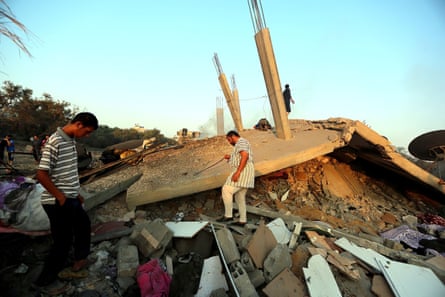
Palestinians inspect ruins in Khan Younis after Israeli airstrikes in Gaza on 8 July 2014. Photograph: Anadolu/Getty Images
It was Donald Trump who began showering Israel with these latest, long-sought-after gifts, but the process carried on seamlessly under Joe Biden. So, on the eve of 7 October, Israel and Saudi Arabia were on the verge of signing what had been giddily hailed as the “deal of the century”.
Where were Palestinian rights and aspirations in all these deals? Absolutely nowhere. Because the other thing that had shifted during these years of impunity was any pretext that Israel intended to return to the negotiating table. The clear goal was crushing the Palestinian movement for self-determination through force, alongside physical and political isolation and fragmentation.
We know how the next chapters of this story go. Hamas’s horrific 7 October attack. Israel’s furious determination to exploit those crimes to do what some of the government’s senior leaders had long wanted to do anyway: depopulate Gaza of Palestinians, which they currently appear to be attempting through the combination of direct killing; mass home demolition (“domicide”); the spread of starvation, thirst and infectious disease; and eventually mass expulsion.
Make no mistake: this is what it means to allow a state to go rogue, to let impunity reign unchecked for decades, using the real collective traumas suffered by the Jewish people as the bottomless excuse and cover story. Impunity like that will swallow not only one country but every country with which it is allied. It will swallow the entire international architecture of humanitarian law forged in the flames of the Nazi holocaust. If we let it.
A decade of legal attacks on BDS
Which raises something else that has not stayed stable over the past two decades: Israel’s escalating obsession with crushing BDS, no matter the cost to hard-won political rights. Back in 2009, there were many arguments being made by BDS’s critics about why it was a bad idea. Some worried that cultural and academic boycotts would shut down much-needed engagement with progressive Israelis, and feared it would veer into censorship. Others maintained that punitive measures would create a backlash and move Israel further to the right.
So it is striking, looking back now, that those early debates have pretty much disappeared from the public sphere, and not because one side won the argument. They disappeared because the entire idea of having a debate was displaced by one all-consuming strategy: using legal and institutional intimidation to put BDS tactics out of reach and shut the movement down.
To date in the United States, a total of 293 anti-BDS bills have been introduced across the country, and they have been enacted in 38 states, according to Palestine Legal, which has closely tracked this surge. It explains that some legislation targets university funding, some requires that anyone receiving a contract with a state or working for a state sign a contract pledging they will not boycott Israel, and “some call on the state to compile public blacklists of entities that boycott for Palestinian rights or support BDS”. In Germany, meanwhile, support for any form of BDS is enough to get awards revoked, funding pulled, and shows and lectures cancelled (something I have experienced first-hand).
This strategy is, unsurprisingly, most aggressive inside Israel itself. In 2011, the country enacted the Law for Prevention of Damage to the State of Israel through Boycott, effectively nipping the nascent Boycott from Within movement in the bud. The Adalah legal center, an organization working for Arab minority rights in Israel, explains that the law “prohibits the public promotion of academic, economic or cultural boycott by Israeli citizens and organizations against Israeli institutions or illegal Israeli settlements in the West Bank. It enables the filing of civil lawsuits against anyone who calls for boycott.” Like the state-level laws in the US, “it also prohibits a person who calls for boycott from participating in any public tender”. In 2017, Israel began openly barring pro-BDS activists from entering Israel; 20 international groups were placed on the so-called BDS blacklist, including the anti-war stalwart Jewish Voice for Peace.
Meanwhile, across the US, lobbyists for oil and gas companies and gun manufacturers are taking a page from the anti-BDS legal offensive and pushing copycat legislation to restrict divestment campaigns that take aim at their clients. “It points to why it’s so dangerous to permit this kind of Palestine exception to speech,” Meera Shah, a senior staff attorney at Palestine Legal, told the magazine Jewish Currents. “Because not only is it harmful to the Palestinian rights movement – it eventually comes to harm other social movements.” Once again, nothing stays static, impunity expands, and when the rights to boycott and divest are stripped away for Palestinian solidarity, the right to use these same tools to push for climate action, gun control and LGBTQ+ rights are stripped away as well.
In a way, this is an advantage, because it presents an opportunity to deepen alliances across movements. Every major progressive organization and union has a stake in protecting the right to boycott and divest as core tenets of free expression and critical tools of social transformation. The small team at Palestine Legal has been leading the pushback in the US in extraordinary ways – filing court cases that challenge anti-BDS laws as unconstitutional and supporting the cases of others. They deserve far more backup.
Is it finally the BDS moment?
Germany, 2020
United States, 2023
Ireland, 2023
There is another reason to take heart: the reason Israel goes after BDS with such ferocity is the very same reason that so many activists have continued to believe in it despite these multipronged attacks. Because it can work.
We saw it when global companies started pulling out of South Africa in the 1980s. It wasn’t because they were suddenly struck by anti-racist moral epiphanies. Rather, as the movement became international, and boycott-and-divestment campaigns started to affect car sales and bank customers outside the country, these companies calculated that it would cost them more to stay in South Africa than to leave. Western governments began belatedly imposing sanctions for similar reasons.
That hurt the South African business sector, parts of which put pressure on the apartheid government to make concessions to the Black liberation movements that had been rebelling against apartheid for decades through uprisings, mass strikes and armed resistance. The costs of maintaining the cruel and violent status quo were growing higher, including for South Africa’s elite.
Finally, by the end of the 80s, the pincer of pressure from the outside and inside grew so intense that President FW de Klerk was forced to release Nelson Mandela from prison after 27 years, and then to hold one-person-one-vote elections, which carried Mandela to the presidency.
The Palestinian organizations that have kept the flame of BDS alive through some very dark years still place their hope in the South African model of outside pressure. Indeed, as Israel perfects the architecture and engineering of ghettoization and expulsion, it may be the only hope.
That’s because Israel is markedly more insulated from internal pressure from Palestinians than white South Africans were under apartheid, who depended on Black labor for everything from domestic work to diamond mining. When Black South Africans withdrew their labor, or engaged in other kinds of economic disruption, it could not be ignored.
Israel has learned from South Africa’s vulnerability: since the 90s, its reliance on Palestinian labor has been steadily decreasing, largely thanks to so-called guest workers and to the influx of roughly a million Jews from the former Soviet Union. This helped make it possible for Israel to move from the oppression model of occupation to today’s ghettoization model, which attempts to disappear Palestinians behind hulking walls with hi-tech sensors and Israel’s much vaunted Iron Dome air defense.
But this model – let’s call it the fortressed bubble – carries vulnerabilities of its own, and not only to Hamas attacks. The more systemic vulnerability comes from Israel’s extreme dependence on trade with Europe and North America, for everything from its tourism sector to its AI-powered surveillance-tech sector. The brand Israel has fashioned for itself is that of a scrappy, hip, western outpost in the desert, a little bubble of San Francisco or Berlin that just happens to find itself in the Arab world.
That makes it uniquely susceptible to the tactics of BDS, including cultural and academic boycotts. Because when pop stars wanting to avoid controversy cancel their Tel Aviv stops, and prestigious US universities cut their official partnerships with Israeli universities after witnessing the detonation of multiple Palestinian schools and universities, and when beautiful people no longer choose Eilat for their holidays because their Instagram followers won’t be impressed, it undermines Israel’s entire economic model, and its sense of itself.
That will introduce pressure where Israel’s leaders clearly feel little today. If global tech and engineering firms stop selling products and services to the Israeli military, that ups the pressure still further, perhaps enough to shift the political dynamics. Israelis badly want to be part of the world community, and if they find themselves suddenly isolated, many more voters could start demanding some of the very actions that Israel’s current leaders dismiss out of hand – like negotiating with Palestinians for a lasting peace rooted in justice and equality as defined under international law, rather than trying to secure its fortressed bubble with white phosphorus and ethnic cleansing.
The hitch, of course, is that for BDS’s nonviolent tactics to work, the wins cannot be sporadic or marginal. They need to be sustained and mainstream – at least as mainstream as the South African campaign, which saw major corporations like General Motors and Barclays Bank pull their investments, while massive artists like Bruce Springsteen and Ringo Starr joined a quintessentially 80s supergroup to belt out “ain’t gonna play Sun City” (a reference to South Africa’s iconic luxury resort).
The BDS movement targeting Israel’s injustice has certainly grown over the past 15 years; Barghouti estimates that the “labor and farmers unions, as well as racial, social, gender and climate justice movements” that support it “collectively represent tens of millions worldwide”. But the movement has yet to reach a South Africa-level tipping point.
That has come at a cost. You don’t need to be a historian of liberation struggles to know that when morally guided tactics are ignored, sidelined, smeared and banned, then other tactics – unbound by those ethical concerns – become far more appealing to people desperate for any hope of change.
We will never know how the present could have been different if more individuals, organizations and governments had heeded the BDS call made by Palestinian civil society when it came in 2005. When I reached out to Barghouti a few days ago, he was not looking back at two decades of impunity, but on 75 years. Israel, he said, “would not have been able to perpetrate its ongoing televised genocide in Gaza without the complicity of states, corporations and institutions with its system of oppression”. Complicity, he stressed, is something we all have the power to reject.
One thing is certain: the current atrocities in Gaza dramatically strengthen the case for boycott, divestment and sanctions. Nonviolent tactics that many wrote off as extreme or feared would get them labelled antisemitic look very different through the dim light of two decades of carnage, with new rubble piled upon old, new grief and trauma etched in the psyches of new generations, and new depths of depravity reached in both word and deed.
This past Sunday, for his final show on MSNBC, Mehdi Hasan interviewed the Gaza-based Palestinian photojournalist Motaz Azaiza, who risks his own life, day after day, to bring images of Israel’s mass killing to the world. His message to US viewers was stark: “Don’t call yourself a free person if you can’t make changes, if you can’t stop a genocide that is still ongoing.”
In a moment such as ours, we are what we do. So many people have been doing more than ever before: blocking arms shipments, occupying seats of government demanding a ceasefire, joining mass protests, telling the truth, however difficult. The combination of these actions may well have contributed to the most significant development in the history of BDS: South Africa’s application to the international court of justice (ICJ) in The Hague accusing Israel of committing genocide and calling for provisional measures to stop its attack on Gaza.
A recent analysis by the Israeli newspaper Haaretz notes that if the ICJ rules in South Africa’s favor, even if the US vetoes military intervention at the United Nations, “an injunction could result in Israel and Israeli companies being ostracized and subject to sanctions imposed by individual countries or blocs”.
Grassroots boycotts, meanwhile, are already beginning to bite. In December, Puma – one of BDS’s top targets – let it be known that it will terminate its controversial sponsorship of Israel’s national football team. Before that, there was an exodus of artists from a major comics festival in Italy, after it emerged that the Israeli embassy was among the sponsors. And this month, the McDonald’s chief executive, Chris Kempczinski, wrote that what he called “misinformation” was having “a meaningful business impact” on some of its sales in “several markets in the Middle East and some outside the region”. This was a reference to a wave of outrage sparked by news that McDonald’s Israel had donated thousands of meals to Israeli soldiers. Kempczinski has sought to separate the global brand from “local owner operators”, but few people in the BDS movement are persuaded by the distinction.
It will also be critical, as momentum for BDS continues to pick up steam, to be acutely aware that we are in the midst of an alarming and real surge of hate crimes, many of them directed at Palestinians and Muslims, but also at Jewish businesses and institutions simply because they are Jewish. That is antisemitism, not political activism.
BDS is a serious, nonviolent movement with an established governing model. While giving local organizers autonomy to determine which campaigns will work in their areas, the BDS national committee (BNC) sets the movement’s guiding principles and carefully selects a small group of high-impact corporate targets, chosen “due to their proven complicity in Israel’s violations of Palestinian human rights”.
The BNC is also very clear that it is not calling for individual Israelis to be boycotted because they are Israeli, stating that it “rejects, on principle, boycotts of individuals based on their opinion or identity (such as citizenship, race, gender or religion)”. The targets, in other words, are institutions complicit in systems of oppression, not people.
No movement is perfect. Every movement will make missteps. The most pressing question now, however, has little to do with perfection. It is simply this: what has the best chance of changing a morally intolerable status quo, while stopping further bloodshed? The indomitable Haaretz journalist Gideon Levy has no illusions about what it will take. He recently told Owen Jones: “The key is in the international community – I mean, Israel will not change by itself … The formula is very simple: as long as Israelis don’t pay and are not punished for the occupation and not taken accountable for it and don’t feel it on a daily basis, nothing will change.”
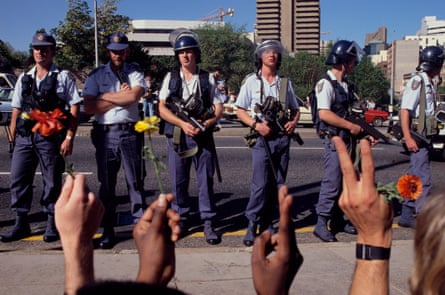
Riot police threaten anti-apartheid student protesters in Johannesburg, South Africa, on 20 August 1989. Photograph: Louise Gubb/Corbis/Getty Images
It’s late
In July 2009, a few months after my original BDS article was published, I traveled to Gaza and the West Bank. In Ramallah, I gave a lecture on my decision to support BDS. It included an apology for failing to add my voice sooner, which I confessed had come from a place of fear – fear that the tactic was too extreme when directed at a state forged in Jewish trauma; fear that I would be accused of betraying my people. Fears that I still have.
“Better late than never,” a kind audience member said to me after the talk.
It was late then; it’s later still now. But it’s not too late. Not too late for all of us to create our own foreign policy from below, one that intervenes in the culture and economy in intelligent and strategic ways – ways that offer tangible hope that Israel’s decades of unchecked impunity will finally come to an end.
As the BDS national committee asked last week: “If not now, when? The South African anti-apartheid movement organized for decades to gain broad international support leading up to the fall of apartheid; and apartheid did fall. Freedom is inevitable. The time is now to take action to join the movement for freedom, justice and equality in Palestine.”
Enough. It’s time for a boycott.
oooooo
“The Palestinian mother, who lost the most precious thing in her life, her children, that’s the most painful thing to see.” Orthodox Jewish Rabbi Haim Sofer breaks down in tears as he looks through images from Gaza, and demands Israeli leaders be judged and jailed at the Hague for war crimes.
Bideoa: https://twitter.com/i/status/1745075743464313231
oooooo
Saul Staniforth@SaulStaniforth
“Most of the medical team evacuated after [Israel] fired live ammunition on the ICU and maternity unit”
reporting from Al-Aqsa hospital, where most of the staff have been forced to evacuate after Israeli threats and bombs.
Bideoa: https://twitter.com/i/status/1744985377251664079
oooooo
Andrew Feinstein@andrewfeinstein
Please don’t forget that Margaret Hodge Labour MP seen here with the President of an apartheid country which is slaughtering tens of thousands of innocent people, profited personally from the apartheid South African state:
Aipamena
Labour Friends of Israel@_LFI
oooooo
I’m creating a montage of IDF terrorists laughing and mocking as they blow up schools, hospitals and peoples homes. If you would like to help please post such videos below this tweet.
Never forgive. Never forget.
oooooo
Aipamena
Simona Mangiante Papadopoulos@SimonaMangiante
urt. 11
BREAKING
Watch the full interview with Andrii Derkach, the Ukrainian parliamentarian who exposed Biden’s family corruption in Ukraine and that have been targeted by both Ukraine and the USA as result.
He disappeared from the public ever since but we achieved to catch him for an interview in Minsk
Here his revelations about the
threats to his life
threats to other witnesses life
court documents
political persecution
FBI undercover agents & much more
I am doing this to serve the country and the entire world. Freedom is information against it all. People deserve to know the truth and what mainstream Media won’t reveal to you.
corruption
Truth calling
#Bidencorruption #Ukraine #ImpeachBiden #Burisma #huntercrimes #stopcorruption #JoeBiden #hunterbiden #AndriyDerkach
Bideoa: https://twitter.com/i/status/1745239534332440966
oooooo
A map of Palestine, published in 1722.
Because the West hadn’t recognised it as an ‘official country’ means *nothing*—at the time of the land theft colloquially labelled ‘Israel’, half the world’s countries didn’t exist.
Bideoa: https://twitter.com/i/status/1742867800861941952
===>Palestine Deserts d’Arabie <====
oooooo
Gogoratzekoa
This is a 1947 map issued by National Geographic.
There was no such thing called “Israel”.
oooooo
Ni neu exilioan bizi naiz, aspalditik
“Exile is more than a geographical concept. You can be an exile in your homeland, in your own house, in a room.”

